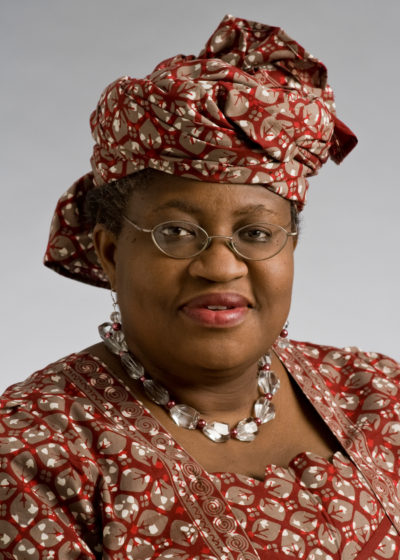 To its credit, the Joe Biden administration has unblocked progress at the world’s premier trade body, which now has a new chief, Ngozi Okonjo-Iweala. The Nigerian-American has made history as the first woman and the first African head of World Trade Organization (WTO).
To its credit, the Joe Biden administration has unblocked progress at the world’s premier trade body, which now has a new chief, Ngozi Okonjo-Iweala. The Nigerian-American has made history as the first woman and the first African head of World Trade Organization (WTO).
She has President Biden’s backing and a good start to her four-year term at a struggling organization would be a quick agreement on fairer trade in COVID-19 vaccines so that poorer countries also get them quickly.
Okonjo-Iweala has an important job. The WTO stands alongside the World Bank and International Monetary Fund as one of the three foundational bodies of the global economic, financial and trade systems.
These systems are the bedrocks of world peace because they have been the main channels for globalization, which helps to ensure that economic tensions do not burst into conflicts and wars. They are also the chief catalysts of global prosperity and rising living standards across the world.
All three fell into disfavor during the Trump administration but the WTO won his special ire because he blamed its rules for America’s negative trade results with China, European Union and other countries.
So he evaded WTO rules by citing national security reasons to impose unilateral tariffs on imports especially from China. He also blocked its judicial and dispute settlement processes by thwarting its top-level appeals panel.
Biden has moved quickly to undo Trump’s negative measures against the WTO but has not yet addressed the previous administration’s trade conflicts with various countries, including China and the EU.
Okonjo-Iweala faces a challenging four-year term because the WTO has been severely weakened by deep divisions among members on all major trade issues. Many divisions have festered for over two decades among the European Union (EU), US, China, India and African developing countries.
WTO has a useful but outdated trade rulebook unsuited to dealing with the changing nature of globalization. It has almost nothing relevant to a state capitalist economy like China and developing countries that might wish to emulate the Chinese model.
Absorbing China’s model into any framework of WTO rules without fundamentally altering the organization’s foundations in Western-style capitalism is a major, perhaps unsurmountable, challenge. It could make the WTO irrelevant for countries that prefer the Western model. Okonjo-Iweala recognizes these differences but thinks they can be bridged.
The global economy and trade system have been sharply disrupted by COVID-19 and the growing bipartisan antagonism in the US against rising Chinese economic and trade influence around the world. The cool tone of Biden’s recent phone call with China’s Xi Jinping was not reassuring.
The US and European powers like France, Germany and Britain have habitually used the WTO as a tool for regulating trade flows in their favor and opening world markets for their exports of both goods and services.
The rise of China, and to a lesser extent India, are eroding that dominance causing consternation and stoking the strongest protectionism since the 1970s, which neither Biden nor the Europeans have disavowed.
For the moment, this discomfort with the erosion of their influence is being folded into ever more insistent Western calls for deep reforms to WTO.
The nature of the reforms is not yet clear but early signals do not look favorable for developing countries. Biden’s comments to Xi and a new EU trade strategy to be discussed this week indicate a pivot in world trade towards holding all trading powers accountable for their treatment of workers and respect for human rights.
If the US an EU get behind such arguments as a bloc, they will face opposition from a majority of WTO’s non-western members, including Asians, that currently account for over one-third of world trade.
Beyond that, the focus of trade reforms is likely to be on Internet cloud-based trading involving services, intellectual property (IP), big data and high-tech.
A switch in these directions is unavoidable because they are the new creators of wealth. But they are potentially disruptive because global trade has so far been understood as manufactures, raw materials, advisory and banking services, and some IP and environmental issues.
All of these will continue but the new areas are the next-level foundations of a global trade system profoundly permeated by information technologies. They will involve a steep learning curve for the WTO and negotiators from most of its member countries.
Okonjo-Iweala has to find ways to rebuild an organization that has not concluded a major trade negotiation since 1994 and whose judicial and dispute settlement systems have not been trusted for over a decade.
Making the world trade system more equitable should be the WTO’s central mission as the global economy enters an epoch of repeated health pandemics and upheavals caused by climate change.
But early signals suggest a Biden-EU agenda to recover from COVID-19 troubles and debt may be less equitable for poorer nations. It remains unclear whether Okonjo-Iweala will be able to stand up to the West to fight for the weak, improve equity in world trade and turn China into a better citizen of WTO.
















